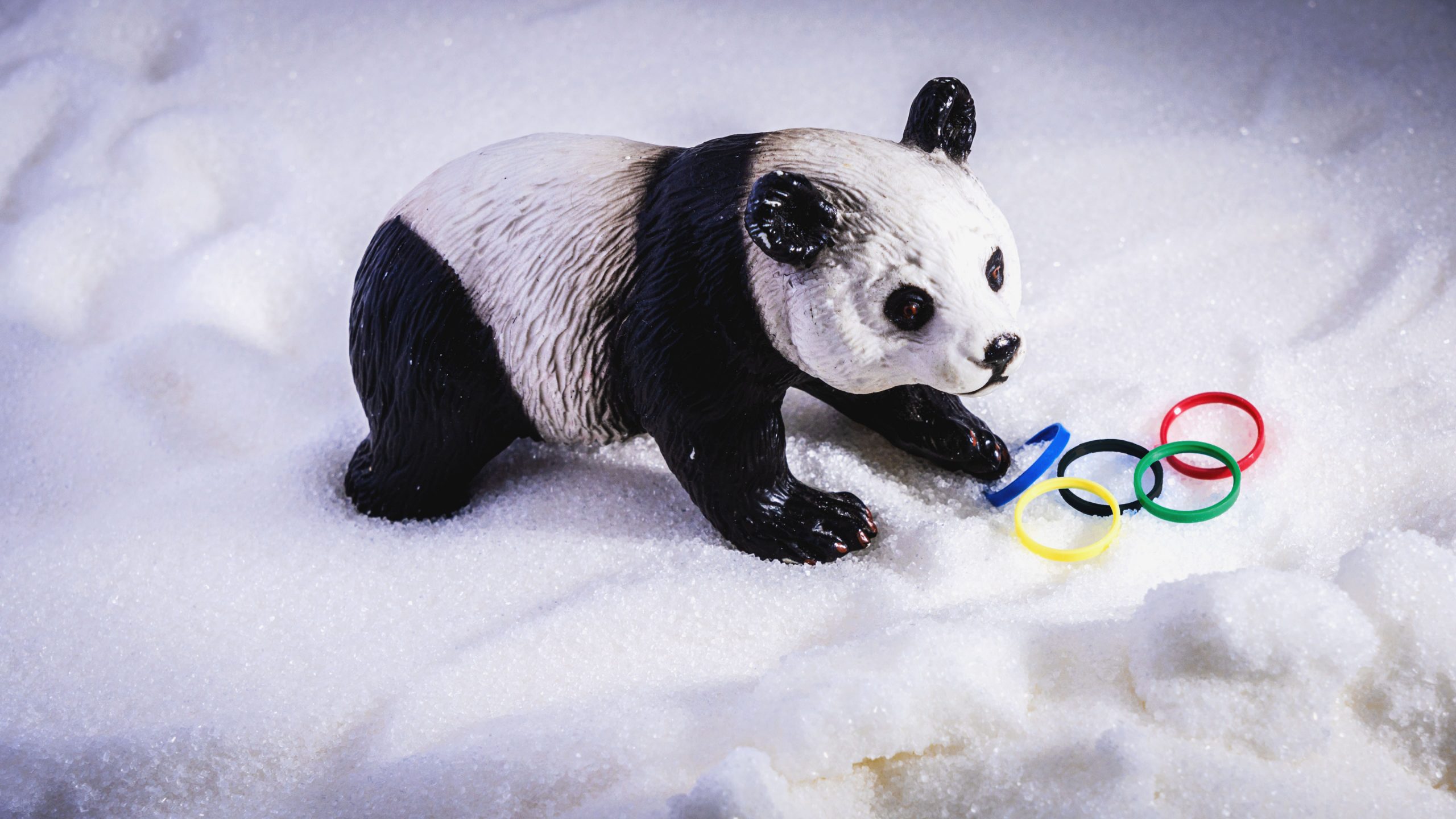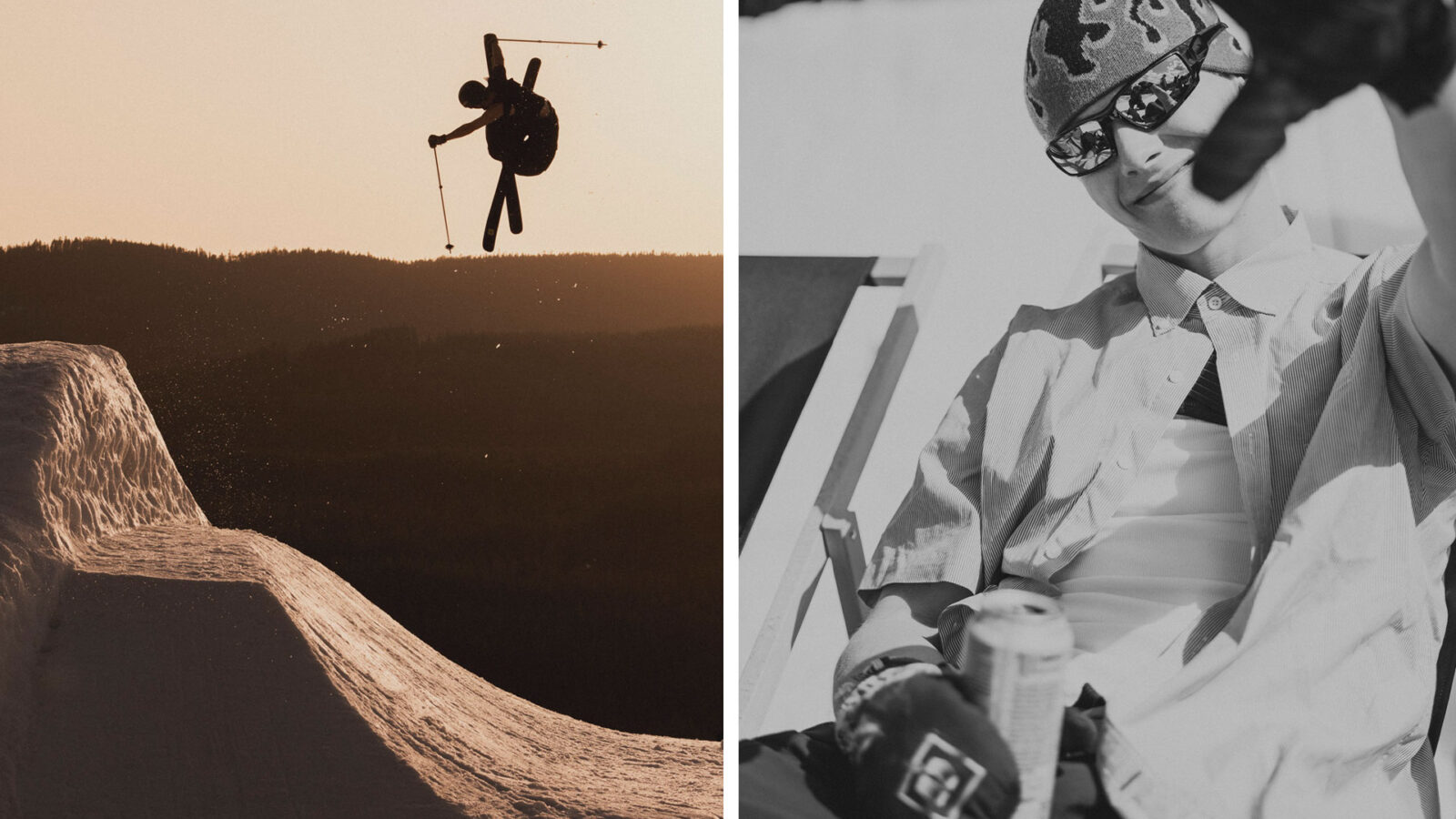
Stories
HighlightColorful rings, aggressive pandas
The Olympic Puzzle
A few colorful rings, an aggressive panda and how to make sense of all this: Why we struggle to come to grips with the mega-event that is currently taking place in China, and what to do about it.
China is important.
Chances are that when you’re out skiing, some part of your gear was made in China. Maybe the skis, maybe the shell jacket or the helmet. The device you are reading this article on most likely contains at least some parts that were manufactured in China—even more likely, the entire device was made there. But China isn’t simply the “workshop of the world” (nowadays you might want to add “laboratory of the world“), it’s also striving to be the foremost world power in political, cultural and sociological terms. As such, it’s competing with the Western world—whatever exactly that may be—and it’s doing so in ways that rightfully draw harsh criticism from many countries and organizations around the globe.
You probably aren’t on Downdays to read about politics, but sometimes it can’t be avoided. The reason this time is, of course, that China is currently hosting the 2022 Olympic Winter Games. I don’t want to delve too deeply into the current political situation in China, but allow me point out that the People’s Republic of China was ranked 151st out of 167 countries in the 2020 World Democracy Index (issued by The Economist).
We can always discuss what kind of society is favorable, and consider that much of China’s behavior might be explainable in a historical context. Yet despite all of that, what this country is currently doing in Tibet, Xinjiang and Hong Kong cannot be justified. For everyone who’s interested, there are plenty of resources online to become more informed on the topic. This overview from Amnesty International would be a good start.
The Olympic Games are important.
The problem of the Olympic Games is bigger than Beijing 2022. There’s also a problem with the Olympics in general. What used to be a fantastic idea has evolved into a mega-enterprise that isn’t so much focused on sports as it is on business. One might argue that this is, in fact, a problem endemic of the “Western world”—after all, eight of the thirteen current major business partners of the International Olympic Committee are companies situated in the West (three are from Japan, and one each from South Korea and China).
Pierre de Coubertin, the initiator of the modern Olympic Games, once famously said, “The most important thing is not to win, but to take part.” We might guess that the motto for Thomas Bach, the current president of the International Olympic Committee, is “Money rules the world.” Everything else comes second: human rights, environmental concerns, the experience for the athletes at what is meant to be “their games.”
To quickly point out a few examples: The location for most of the competitions makes no sense at all. The selection of the disciplines doesn’t really make sense either. The qualification norms for the athletes often don’t make sense, and the timetable at the Olympics is pretty strange. That is, unless you take the perspective of the companies that profit from the Olympics—mainly sponsors and broadcasters—or of the National Olympic Committees, which use their nation’s medal count for their own prestige. For them, the show is more important than sports.
When contemplating all these aspects, we had a long internal debate about whether we should feature the Olympic freeski events on Downdays. Honestly, it would have been a slick way out for us to “boycott” the Olympics. After all, it’s difficult for a special interest media platform like us to report on the Games, since there’s almost no free imagery available, and the press passes are hard to come by. Okay, let's be clear here—there's not a snowball's chance in hell of us getting real press access to any Olympics, much less this particular one.
In the end, however, we decided to inform our audience about what’s happening in Beijing in respect to freeskiing, for the sole reason that no part of the issues I'm addressing here is the fault of the athletes. In fact, all that athletes can be expected to do at the Olympic Games is perform, and we shouldn’t hinder them from putting their performance on display. After all, the Olympics are still the biggest showcase of sports that exists. For many athletes, it’s not a choice to opt out of the Games. If they choose to not compete, they might lose important sponsors and thus, eventually, their profession. Not to mention that for many of them, it’s been a childhood dream to compete at the Olympics.
Change is important.
It should have been clear before, but with the evidence of the current Games in Beijing, it’s become more than obvious: the Olympics need to change. Our society as a whole—what we all consider important and how we follow up on those ideals— also needs to change. I’m saying that from the perspective of our Western societies. There is too much talk about values, and too little action.
So, are the Olympic Games in Beijing our catalyst to get started? Frankly, no—it’s already too late for that. The Olympics in Beijing are already underway, and any disparaging coverage that we might venture would ultimately be disparaging to the athletes. And as I mentioned above, it’s the athletes who are the least responsible for the mess we find ourselves in. In fact, it’s the athletes who seem to be the ones most closely adhering to the original values of the Olympic idea. It’s the officials of the sports and federal organizations, together with the managers of supporting companies, who’ve betrayed those ideals. But first and foremost, it’s our society that allows these people to commit that betrayal. We need to change that, and that change will require a long and sustained effort.
I’ll spare you from a lengthy analysis of what needs to change with the Olympics. I think most of us will agree on a wide array of points here anyway. Most of all, we need to remember that it’s with us where this change needs to start. In the meantime, let’s enjoy what’s happening on the sportive side of the five-ringed circus in Beijing, and let’s cherish the athletes who inspire us with their performances and genuine love for their sports. And let’s try to not fall for the messages that some may try to sell us beyond a pure celebration of sports and the true ideals of the Olympic movement. The athletes need to reclaim the Olympics, and we, the people, need to support them in this effort.





